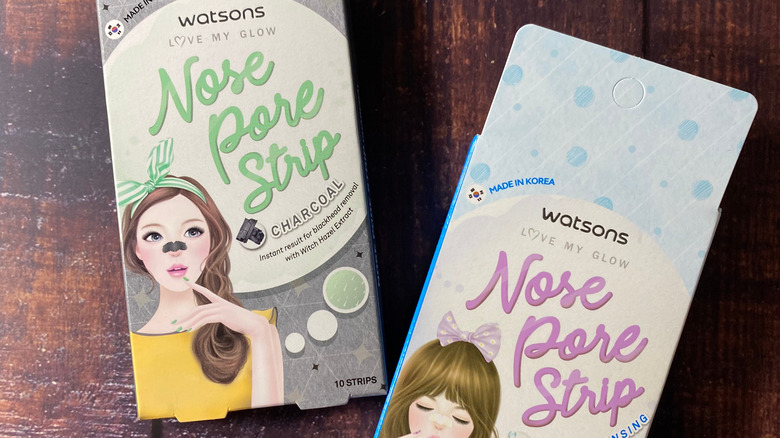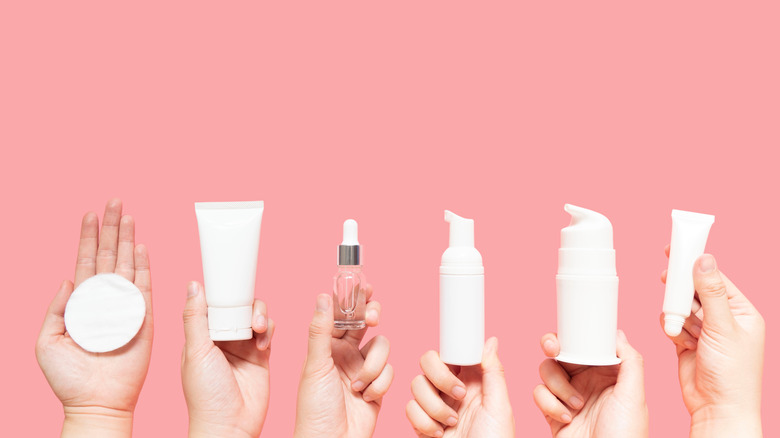Read This Before Using Pore Strips
Pore strips are practically a rite of passage for teenage girls hoping to get blackhead-free skin. These adhesive strips are usually placed on the nose and pull out blackheads in a way that is oh-so-satisfying. They often promise to shrink pores and clear up skin in the long term, but how much truth is there to these claims? Here's what you should know.
Blackheads are most commonly found on the nose and occur when oil builds up in the pores. "Blackheads happen when oil in the pores of the skin is exposed to air and oxidized, resulting in [a black appearance]," Purvisha Patel, MD, told Byrdie. "If the adhesive truly grabs the oil and pulls it out, voilá — the blackhead is taken out."
Although pore strips will leave you with a much cleaner looking nose, they don't provide a long-term solution to blackheads. You'll probably see new blackheads pop up in the same spot a few days later. In fact, pore strips can actually create more blackheads in the long run because they often strip the nose of its natural oils to keep it hydrated (via Self). To compensate, your skin will produce even more oil and clog your pores even more than they were previously.
The right skincare routine will address blackheads better than a pore strip
While there's nothing wrong with using a pore strip every so often, you'll get more bang for your buck by finding the best skincare routine for your needs. An over-the-counter acne treatment that contains salicylic acid will be the most effective for people with blackheads (via Allure). This acid loosens and dissolves dead skin cells that can trap oil and cause blackheads to form.
"Salicylic acid can directly dissolve the keratin plugs and regulate the skin cells," Rachel Nazarian, a board-certified dermatologist in New York City, told Allure. "It does have some effectiveness against cystic acne due to its antibacterial activity, but less so than the classic blackheads and whiteheads."
A topical retinoid can also help treat blackheads in people who don't find success with over-the-counter medications. Talk to your dermatologist if your blackheads (or any skin concerns, for that matter) are difficult to deal with. Everyone's skin is a little different and your ideal skincare routine will be unique to you.


